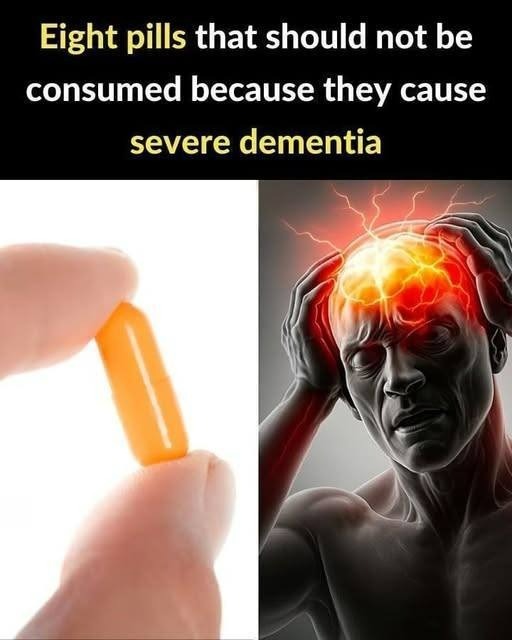In today’s fast-paced world, medications are a part of daily life for millions of people. While many drugs are life-saving, some have been associated with cognitive side effects — including memory problems or an increased risk of dementia when used long-term.
It’s crucial to understand that not every medication causes dementia directly. However, certain types of drugs can interfere with brain chemistry, leading to confusion, forgetfulness, and cognitive decline, especially in older adults. Here are eight categories of medications that doctors often review carefully for their potential impact on memory.
1. Anticholinergic Drugs
These medications block the neurotransmitter acetylcholine, which is essential for learning and memory. They’re often used for allergies, sleep, or bladder control. Long-term or high-dose use may increase dementia risk.
Common examples: Some antihistamines, bladder relaxants, and certain antidepressants.
2. Benzodiazepines
Used to treat anxiety and insomnia, benzodiazepines can slow brain activity. Regular use — especially in older adults — is linked to memory loss and confusion.
Common examples: Diazepam, lorazepam, alprazolam.
3. Sleep Aids and Sedatives
Many over-the-counter sleep medications contain antihistamines that can impair alertness and short-term memory.
Common examples: Diphenhydramine (found in some sleep aids and cold medicines).
4. Certain Antidepressants
While antidepressants can be vital for mental health, older classes like tricyclic antidepressants have strong anticholinergic effects that may affect cognition.
Common examples: Amitriptyline, doxepin, imipramine.
5. Antipsychotics
Used for psychiatric disorders, these drugs can……











